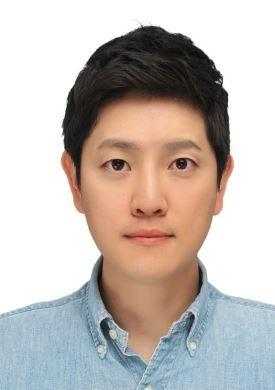
Taewon Kim, PhD, first became interested in the neurosciences while playing high school baseball, when he began wondering how his brain retained the motor skills he picked up during hours of practice. Now, as a postdoctoral associate within the laboratory of Wayne Feng, MD, MD he’s helping to investigate how to help patients keep and build on those same motor skills after they’ve had a stroke. In this week’s “spotlight” interview, Kim talks to us about his graduate studies, his work at Duke, and his plans to continue academic research in the future.
What are your current responsibilities within the laboratory of Wayne Feng? What does a typical day for you look like?
My primary responsibility within the laboratory of Dr. Feng to conduct research on post-stroke motor recovery enhancement with neuromodulation tools such as TMS, tDCS, and with low-intensity focused ultrasound stimulation (LIFU) for post-stroke motor modulation.
We believe that LIFU with brain-imaging tools will allow us investigate the neural underpinnings of LIFU enhanced cortical excitability and neuroplasticity in stroke patients. In this way I hope my efforts could help mitigate neuropathology-related declines in motor functioning in neurologically impaired patients.
How and when did you first get interested in neurology? What interests you the most about the field?
As a high school student I played baseball, and I always wondered how we as humans learned motor skills. I also did not want to forget skills that I acquired through extensive practice. I found some answers during my graduate studies in motor neuroscience.
I would like to better understand both neurological disorders and the scientific basis for how to radically improve motor recovery and learn novel motor skill in neurologically impaired humans--especially stroke patients. As a consequence, my strongest interest at the moment is developing interventions using noninvasive brain stimulation tools targeting the neuroplasticity mechanisms underlying motor recovery.
You earned your master’s and doctorate in motor neuroscience from Texas A&M. What was the subject of your doctoral research, and how does it inform your current work?
Throughout my academic training at Texas A&M, my research addressed how the brain enables motor skill acquisition, consolidation, and long-term retention to occur. To understand the mechanisms by which learning and memory are modulated over time, I conducted extensive experiments focused on aspects of behavioural motor learning and developed conceptual/theoretical understanding of how practice structure and brain stimulation modulates the brain.
Thus, the majority of my experimental effort focused on the contextual interference effect, which arranges training such that the learner executes multiple motor tasks in an interleaved or repetitive practice format. I combined behavioral experiments focused on understanding different types of practice structure to identify the efficient practice format for better learning outcome coupled with non-invasive brain stimulation (TMS/tDCS).
Beyond the behavioral level of research in healthy adults, I wanted to develop and apply my knowledge to understanding the clinical effects and underlying mechanisms of the neuromodulation using NIBS tools combined with practice variability to find new pathways for rehabilitation. I would thus continuously want to acquire new knowledge and advanced methodological techniques such as multiple NIBS and neuroimaging to probes underlying neurophysiological mechanisms in Motor Recovery after Stroke. That interest is consistent with the goals of Dr. Feng’s research group.
What plans do you have for the future? If you could have any job in the world, what would it be?
I would like to maintain a permanent position in academia and establish To help me survive in academia, my next step is to apply for research grants. Dr. Feng’s research team at Duke builds heavily on expertise in the multidisciplinary intersection stroke recovery, neuromodulation, and biomedical engineering. My postdoctoral training under that team will allow me not only to significantly expand my scientific skills and knowledge, but also continue to develop an international network of collaborators and gain in-depth in research, study and financial management, and grant writing. This training will thereby pave the road to excellence by promoting my development as an independent researcher and providing the foundation for the successful procurement of funding and establishing my own research group in the near future.
What other passions or hobbies do you have outside of the Department?
I like traveling and playing badminton and love watching the English Premier League, UEFA Champions League and college basketball. I am already a proud of Duke basketball fan.

Kim visits Niagara Falls in the photo above, and pitches a baseball game in the photo below.
